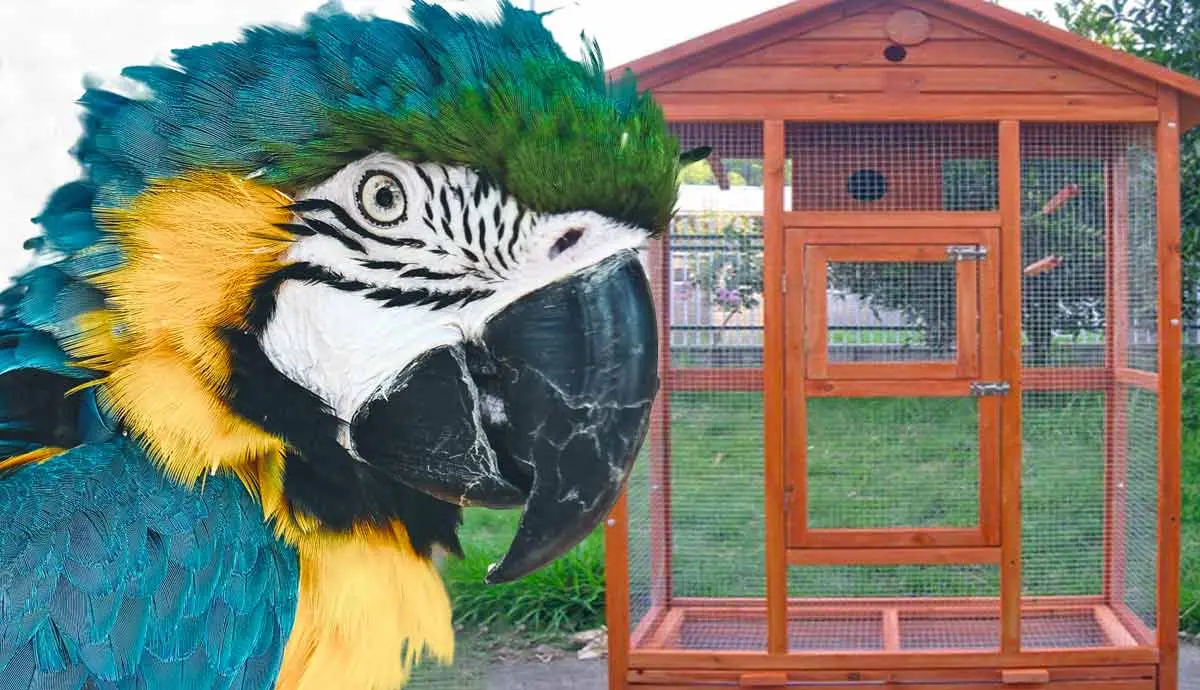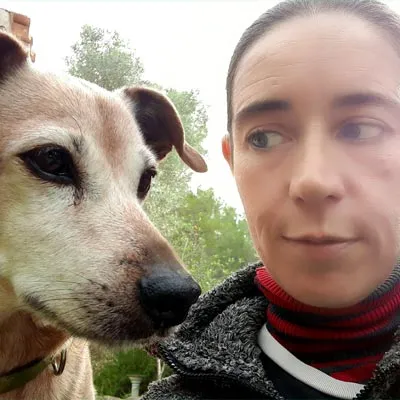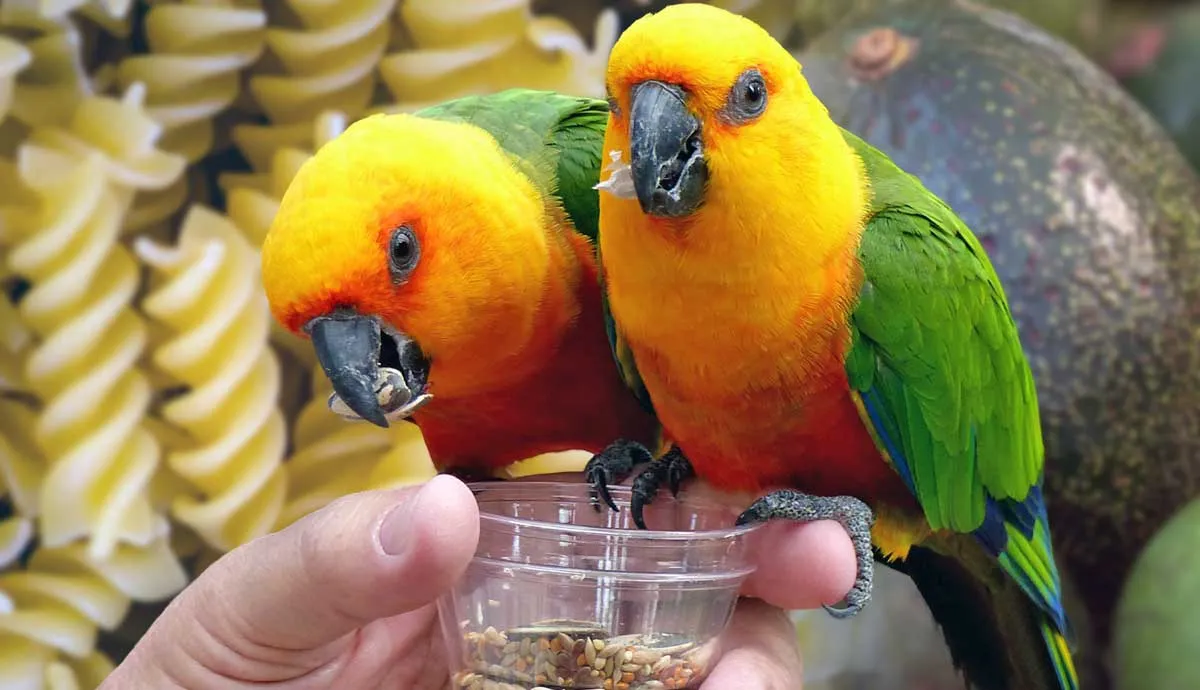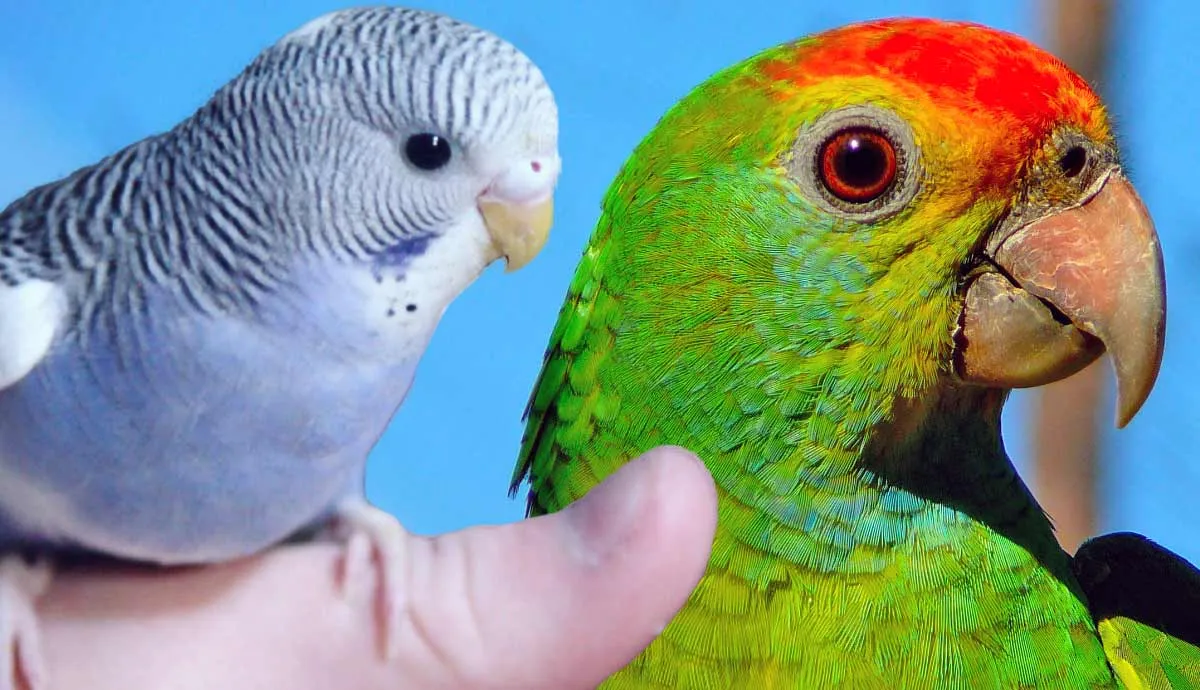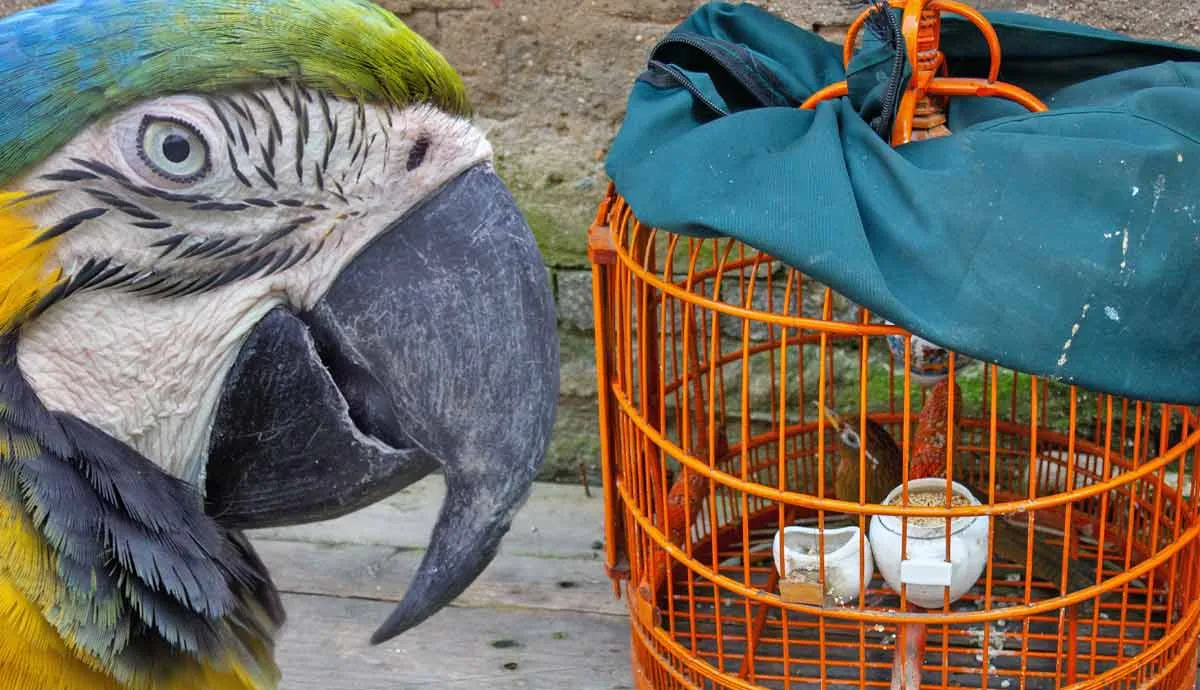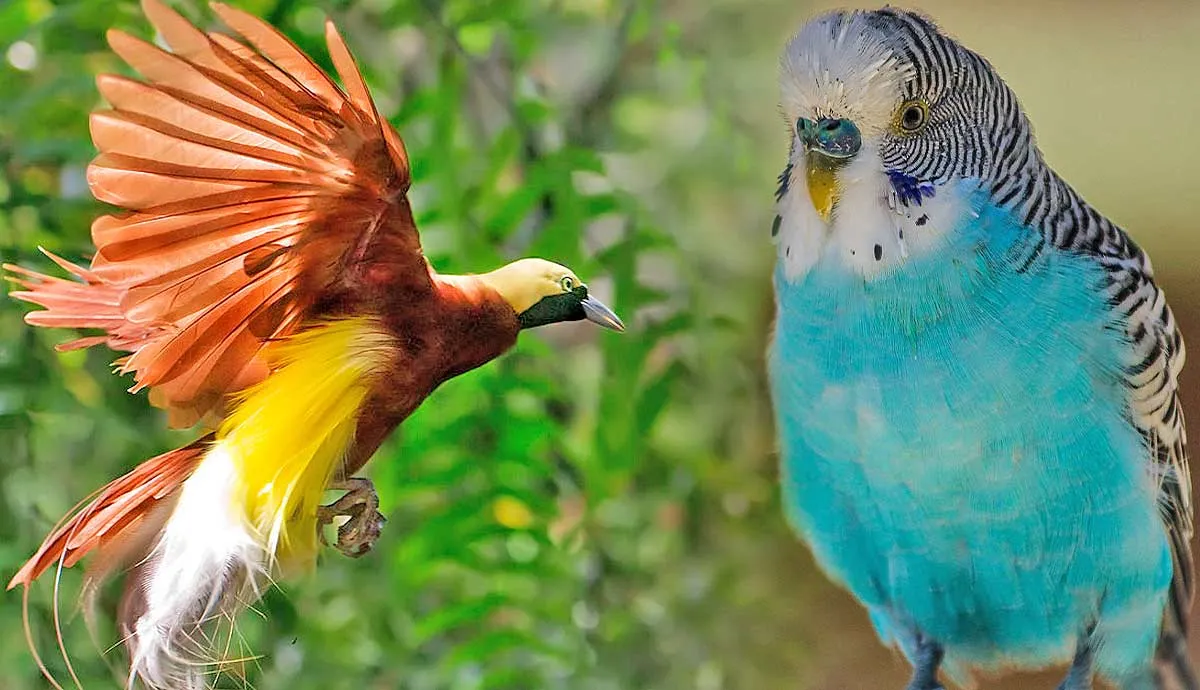Birds, like all pets, need daily care and attention. Caged animals, in particular, need regular cleaning because they live in a small area. No one likes living in a dirty house, and birds are no different. If you’re new to bird keeping, one of the first things you’re probably asking yourself is, how often should I clean a bird's cage? You can find the answer to your question and essential cage-cleaning advice in my article below.
How Often Should I Clean a Bird Cage?
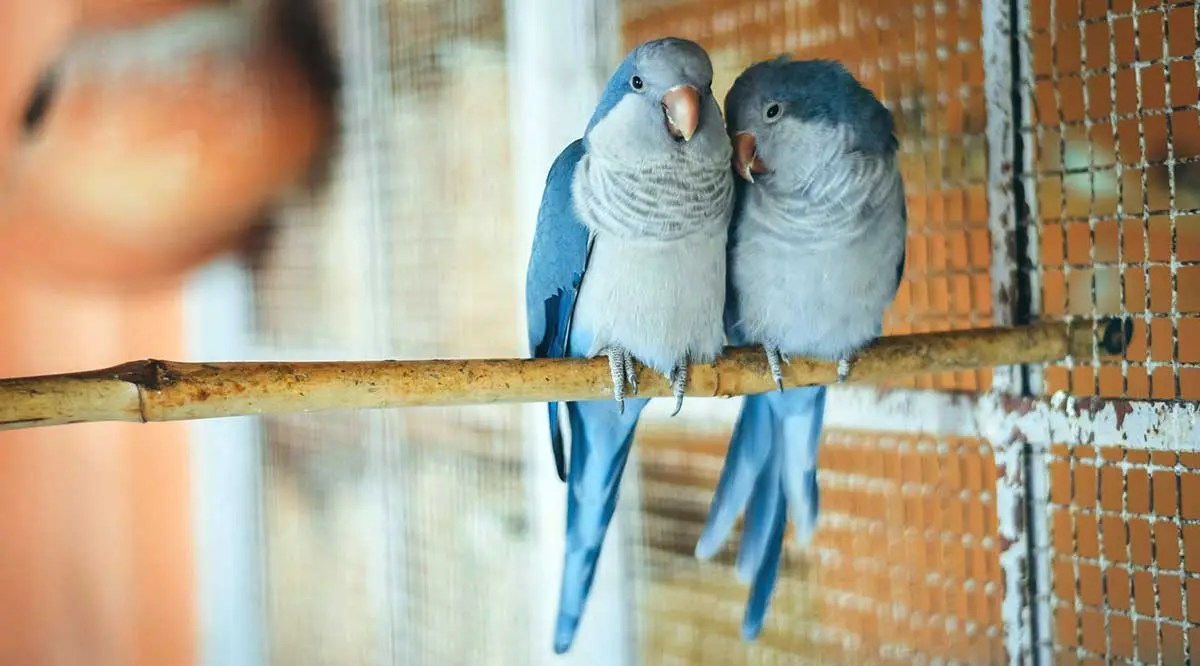
Depending on the cage size and number of birds, you must deep clean the cage weekly or monthly. Monthly deep cleaning is enough if you have one or two small birds, like budgies, in a medium-sized cage. If you have a large bird in a small cage or many birds in a cage, you must deep clean it weekly. In addition to regular deep cleaning, you must check your bird's cage daily and clean and replace the food, water, and cage liner.
Cleaning and cage hygiene is a vital part of pet bird care. The best way to ensure your bird's living quarters are hygienic is to make a cleaning routine and stick to it. Perform your cleaning tasks at the same time daily, weekly, or monthly. If you don't have a routine, weeks can easily slip by without realizing a deep clean is overdue.
The Benefits of Cleaning a Bird Cage Regularly
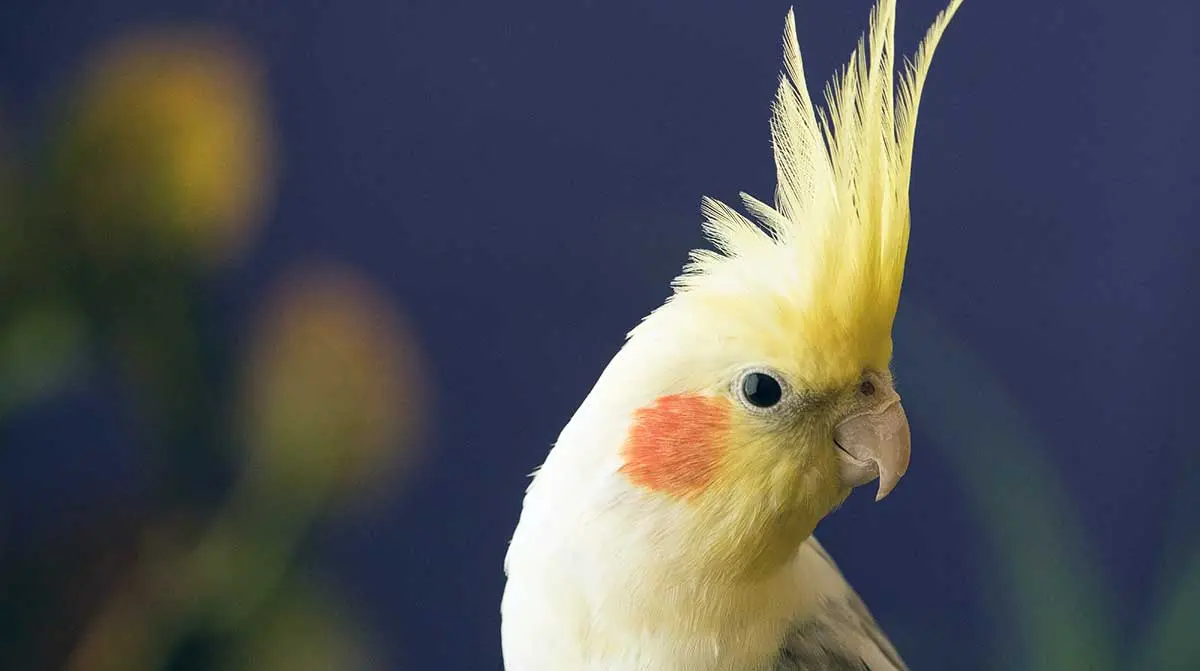
Regular cleaning is essential for a pet bird's welfare because they generally live in small, confined areas and eat and defecate in the same place. Bird cages become dirty quickly - and if you don't clean them, feces, old food, feathers, and dust become a breeding ground for bacteria.
So, not only is living in a dirty cage unpleasant for birds, but it is also harmful to their health.
Dirty birds are more susceptible to illnesses, and dirty cages attract insects, mites and even rodents. Some common bird illnesses, such as salmonella, are zoonotic, meaning they can pass to humans. Whether you have a popular pet bird species or a rare one, regular cleaning promotes a healthy, happy living space for you and your bird.
Daily Cleaning and Maintenance Tasks for Pet Birds
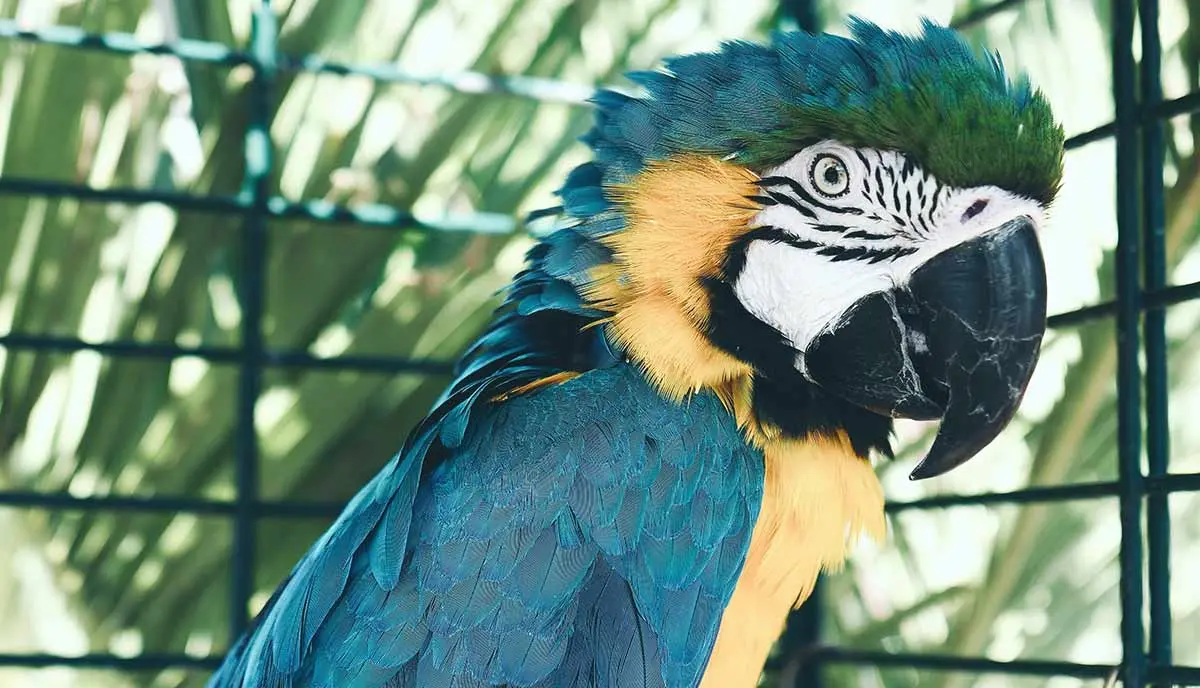
As a responsible bird owner - you must tend to your pet’s cage daily. A daily cage service also allows you to interact with your feathered friends and ensure they’re happy and healthy.
Here is a list of essential daily maintenance tasks for pet bird owners:
- Check your bird - do they look healthy and well?
- Inspect the feathers and droppings - Are there excessive feathers on the floor, and are droppings normal? Birds molt once or twice a year, and a few feathers on the floor are normal. Excessive feathers on the cage floor or irregular droppings may indicate illness.
- Clean water and food bowls - Empty the bowls - clean them and dry them thoroughly before refilling them with food and water. You should also remove leftover bird treats from the cage.
- Check the toys, fixtures, and fittings - Check all toys and ensure they are in good working order with no broken pieces which can injure your bird.
- Change the cage liner - Remove the liner - and replace it with a clean one. Some owners put a stack of liners down at the start of the week and remove the top layer daily.
- Clean the area around the cage with a vacuum.
Monthly or Weekly Deep Cleaning of Bird Cages
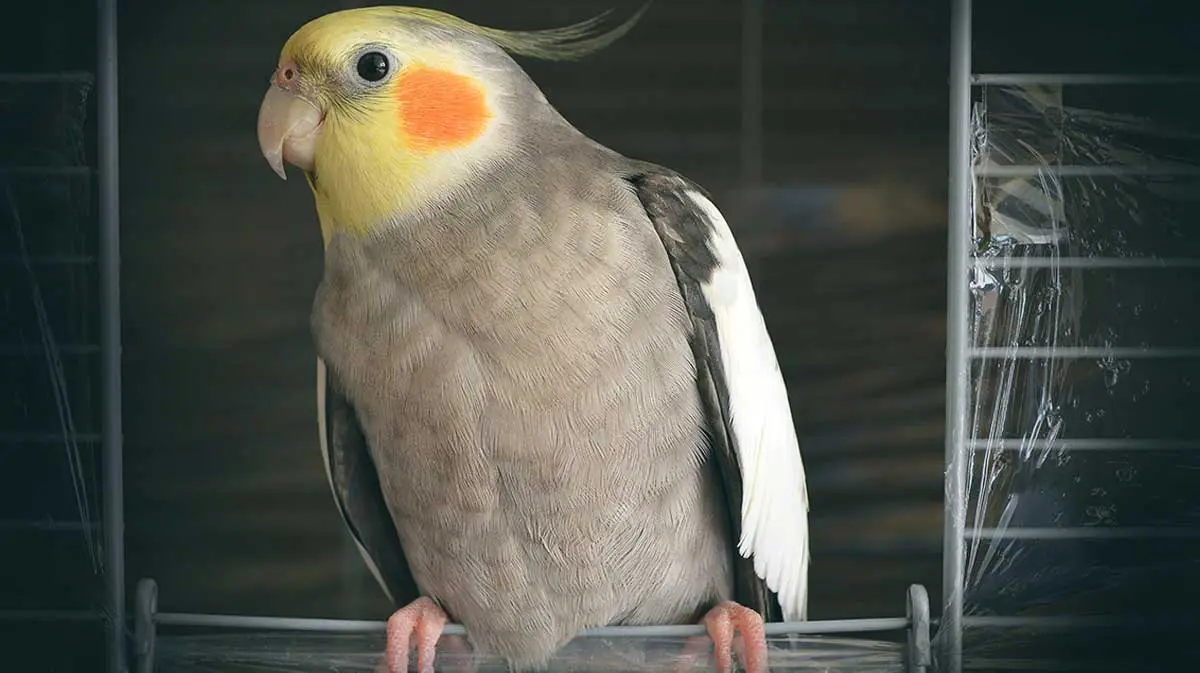
Regular deep cleaning with disinfectant is essential to prevent mold and bacteria, which reduces the risk of common health issues in birds.
Here’s how to deep clean a bird cage:
- Remove the bird/s - Preferably into another room so you don't expose them to dust or disinfectant fumes.
- Remove everything from the cage - including toys, perches, hides, food and water bowls and the liner.
- Choose a safe cleaning product - Use a mild disinfectant, bleach solution or a pet-friendly disinfectant. Never use harsh chemicals, products with perfume, or ammonia because their fumes and residue can harm birds.
- Deep clean the cage - Use a sponge, cloth and toothbrush with a mild disinfectant or bleach solution to clean the cage thoroughly. Clean all surfaces - the bars, bottom rack and floor. Rinse the cage thoroughly when using bleach or disinfectant because even the residue from mild products may cause irritation.
- Dry everything thoroughly - Everything must be dry before you replace it to prevent mold.
- Replace items - When you replace the items, to make your bird's life a little more interesting, change the setup around a little. Bird toys are a crucial part of pet bird environment enrichment.
Deep Cleaning Toys and Perches
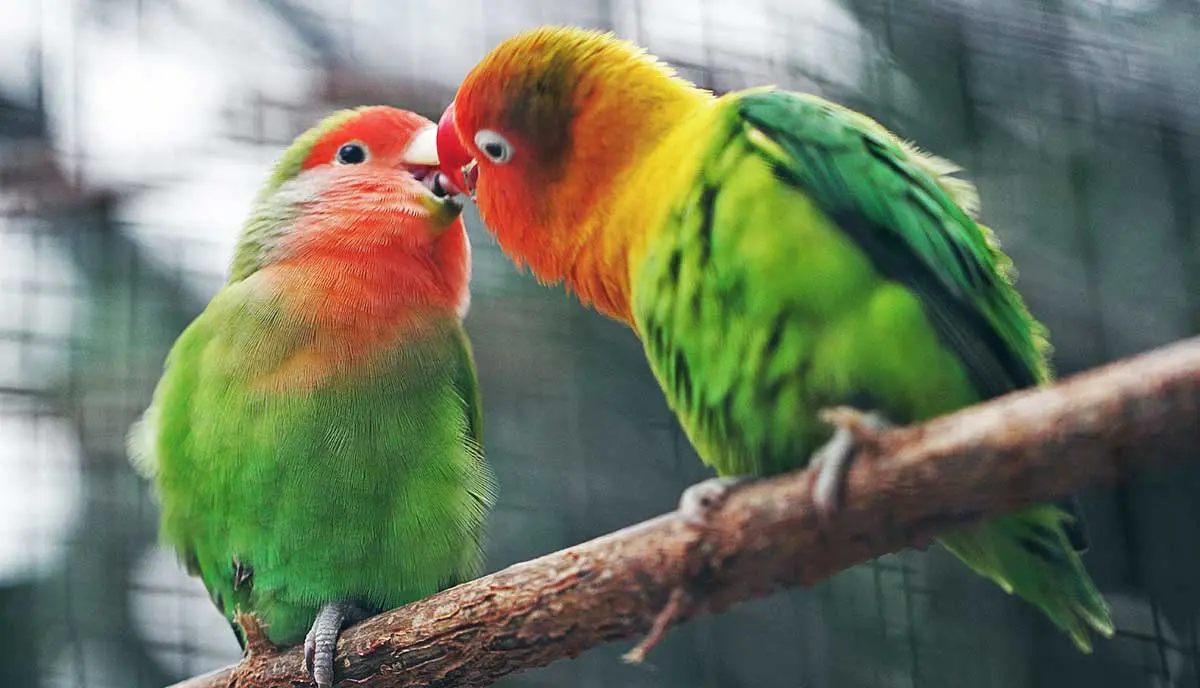
Clean toys and perches when they're dirty, and deep clean them monthly. Use sandpaper to remove stubborn, dried droppings from perches. You can put some fabric toys in the washing machine to deep clean them - if not, hand wash them in hot water. Usually, toys and perches come in porous materials, like wood and fabric - which are prone to rot. They also harbor bacteria, so you must usually replace them every 3 - 6 months or sooner if they become moldy or frayed.
What Bedding Should I Use for Pet Birds?
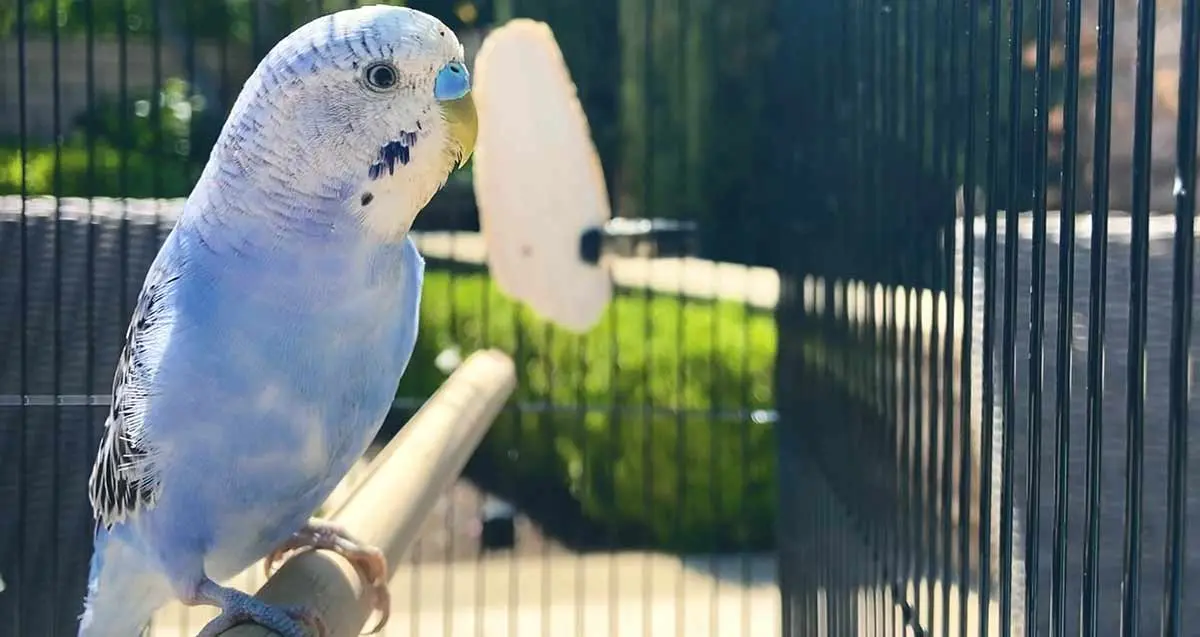
Most veterinarians recommend using a paper liner for a bird's cage without bedding. A layer of bedding on the floor will trap dirt and moisture and will mold quickly. Birds will also nibble on the bedding. If they eat corn cob bedding, cat litter, shavings, or shredded paper, it can harm their health. Vets also advise against using sandpaper cage liners because it also causes digestive and health complaints if they eat it. The best lining for a birdcage is paper towels, newspaper, or any absorbent paper. Newspaper ink used to be toxic, but now it’s perfectly safe.
